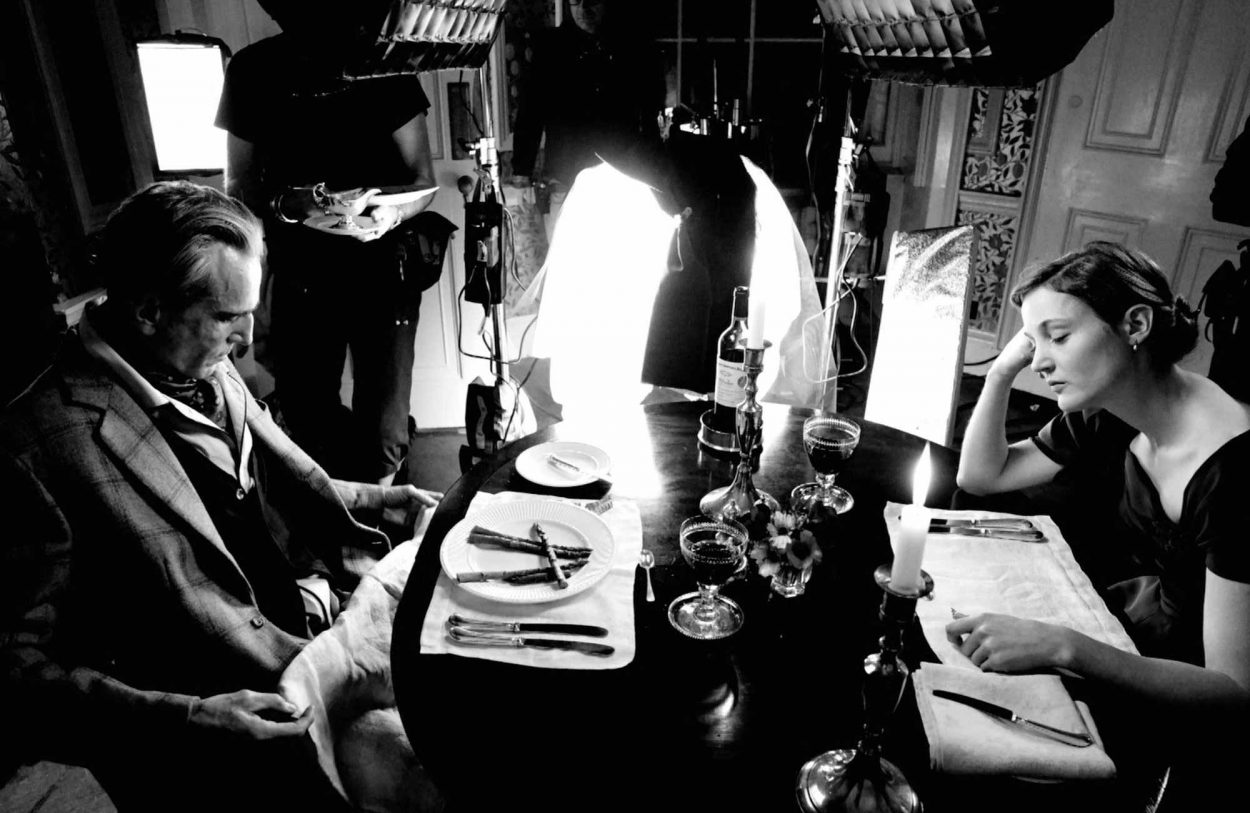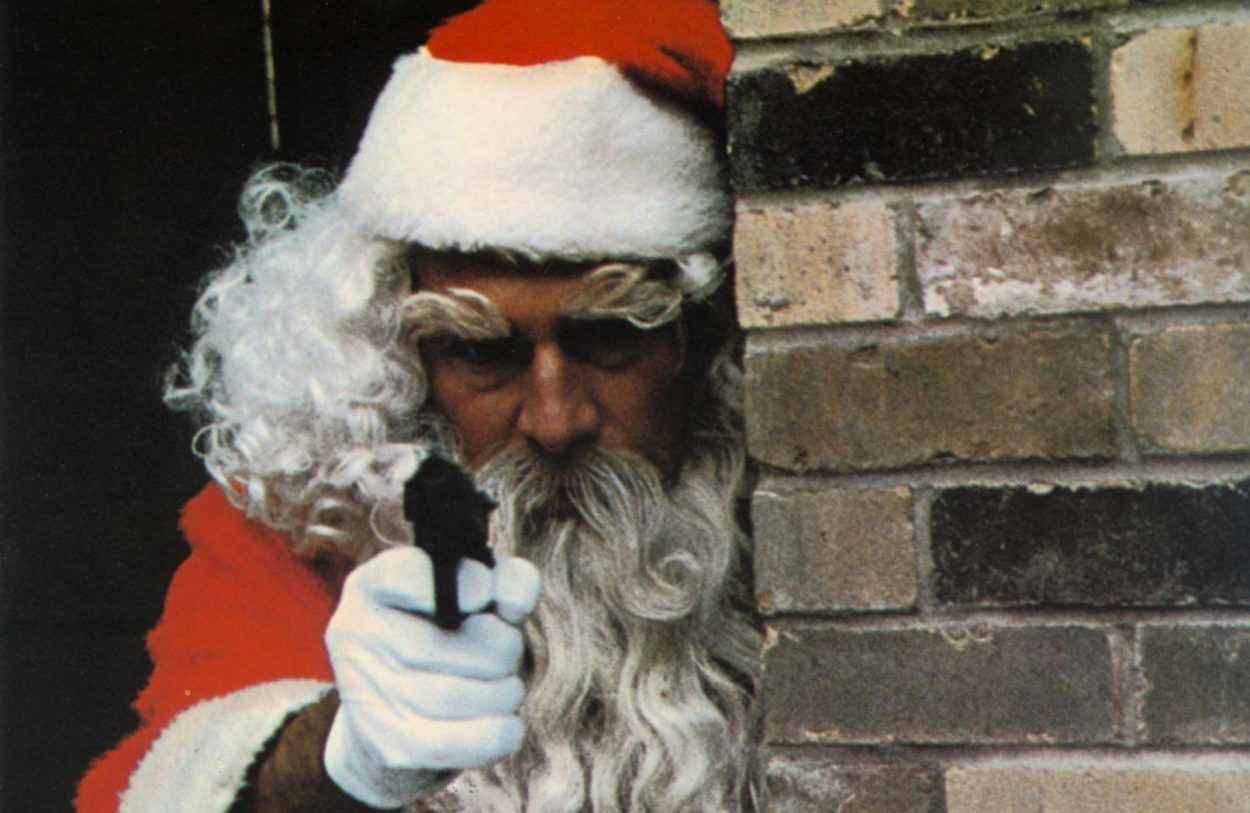“Fire: The Untamed Element. Oldest of man’s mysteries. Giver of warmth. Destroyer of forests.” And on Grindhouse Tuesday, April 30th, the New Beverly will be ablaze with two scorching Hong Kong action dramas, each directed by an acclaimed and influential artist of the nation’s ‘80s film wave, each so intense they were forcibly re-edited, and both full of crime, violence, shocking turns, and troubled young women enacting the age-old drama of self-preservation.
High school pals Ko (Paul Che Biu-law), Lung (Lung Tin-sang), and Paul (Albert Au Shui-keung) are already on a dangerous pattern of delinquent behavior, which quickly puts them in the path of Pearl Wan-chu (Lin Chen-chi), an already-full-blown sociopath, who blackmails them into letting her not only join them, but increase the stakes exponentially with robbery, bombings, and general mayhem. Soon, the city and media are at high panic, with not even Pearl’s police detective brother Tan (Lo Lieh) able to figure out a strategy to quell it. But nobody is prepared for how nigh-apocalyptic things will get when the gang runs afoul of American arms dealers, who have plenty of Vietnam war atrocities in their history, and are ready to escalate the carnage. These are Dangerous Encounters of the First Kind from 1980, depicted by director Tsui Hark, with a retitled warning for the rest of the watching world: Don’t Play with Fire!
Fire was the third film by the then-fledgling Tsui, who had studied filmmaking in Texas before returning to Hong Kong to direct projects. His preceding film, We’re Going to Eat You, used a dark, gruesome plot about cannibalism as a metaphor to protest Chinese communism. Just turning 30 when he made Fire, he had intended it as a similar jeremiad against economic disparity, colonialism, the overweening influence of foreign interests, and lingering local outrage from previously suppressed uprisings. Both films made significant use of music created by Goblin for other films – Eat featured several cues from their Suspiria score, while Fire used music composed for the European cut of Dawn of the Dead. The then-British-government-backed film censors enforced radical editing changes, fearing that the bombing incidents shown would prompt others to carry out such acts, though Tsui had based them on bombings that had already taken place; references to the 1967 Hong Kong riots were also demanded removed. The film did not do well, partly due to press generated from the editing conflicts, and led to Tsui toning down his style and creating more audience-friendly hits such as Zu Warriors from the Magic Mountain and Peking Opera Blues. In 1988, the film was retroactively given the country’s new “adults only” Category III rating.
Lin Chen-chi, who portrayed Fire’s coercive anti-heroine, and had previously appeared in Cleopatra Jones and the City of Gold and The Spiritual Boxer, would later find herself caught up in a real-life controversy long after she had retired from acting. In the spring of 2006, a video of an argument between an older and younger man on a Hong Kong bus went viral; the older man, Roger Chan Yuet-tung, became known as “Bus Uncle,” and his repeated complaint, “I have stress,” became an internet meme. Chan had recently been hired as a Public Relations officer at the Hong Kong restaurant chain Steak Expert, owned by Lin and her husband Li De-lin, and Chan’s notoriety, including an attack on him by masked assailants while at work and tabloid charges of frequenting hostess bars, drove Lin to demand her husband fire Chan. When Li initially refused, Lin locked herself in her bedroom, called an employee, and told them she had overdosed on sleeping pills. The fire department was summoned to retrieve her, and she was hospitalized to have her stomach pumped. Chan resigned immediately after the incident.
After Tsui’s portrait of chaos in the city comes chaos in the classroom with Ringo Lam’s 1988 School on Fire. Chu Yuen-fong (Fennie Yuen Kit-ying) had been a good student with a pleasant life. But after witnessing a student’s death outside the school, she learns quickly she’s been in the thick of Triad criminal infiltration, as she is pulled between police pressuring her to testify, while local enforcer Brother Smart (Roy Cheung Yiu-yeung) physically threatens her and her family and demands exorbitant protection money to bully her into keeping quiet. With law enforcement, parents, and administrators too cowed to challenge the criminals, Chu has only her best friend (Sarah Lee Lai-yui) and stalwart teacher Mr. Wan (Damian Lau Chung-yan) actively trying to help her, but they can only do so much. Author William Trevor once wrote, “The world is the school gone mad,” and in this crime-infested city, some people want to watch this particular world burn…
School was the closer of Lam’s unofficial “Fire” trilogy, preceded by City on Fire and Prison on Fire in 1987. Actors who appeared in all three of these films are Roy Cheung, William Ho Ka-kui, Tommy Wong Kwong-leung, and Victor Hon Kwan. Recurring crew in all three films include producer Catherine Chan Si-kan and art director Luk Chi-fung, who also served as production designer on John Woo’s A Better Tomorrow II, featured on this month’s New Bev calendar just before this screening. Sarah Lee, playing Chu’s ill-fated confidante, won Best Supporting Actress at the 8th Hong Kong Film Awards for this performance.
Like Prison, School was scripted by Lam’s brother Nam Yim. In a 2015 interview given when he received the New York Asian Film Festival Lifetime Achievement Award, Lam recalled, “[My brother Nam] loved movies and I just kept him company. We both went to fill out the application form to join [an acting] class, and I got selected, and I joined, and my brother didn’t get in. So I didn’t plan to be trained as an actor, never, I didn’t really know about filmmaking when I was young, I had no plan at all. I only found out I like filmmaking after the acting training class… His influence on me was that my movies would get more and more realistic. If I work on a script myself, like City on Fire, to a certain extent, the movie becomes more romanticized, but when we come to Prison on Fire, this romanticism, starts to minimize, when we get to School on Fire, it’s getting more and more (pounds fist into his palm)…” Lam’s bleak vision was not appreciated by Hong Kong censors, who required over 30 cuts to be made before allowing School to be released, still branding it with the “Category III” rating despite the cuts. “It’s not just Hong Kong,” he observed in the same interview. “When I watch the news, so many students get shot in America, on campus, essentially all of these things, I cannot hear it, but since I live in Hong Kong, and my environment is so chaotic, all of these things consciously, or subconsciously, those elements translate in my form. And, as I said, what can I do? I feel helpless. Maybe that can explain the reason why, my characters in my movies, they are also really helpless. Things are not under control, you do something, and maybe you are not willing to do it, but you still have to do it.”
April will be going out with a Grindhouse Tuesday so incendiary, these reels are on fire as they unspool their dramatic load. So notify your next of kin to attend, because this show shall explode.


